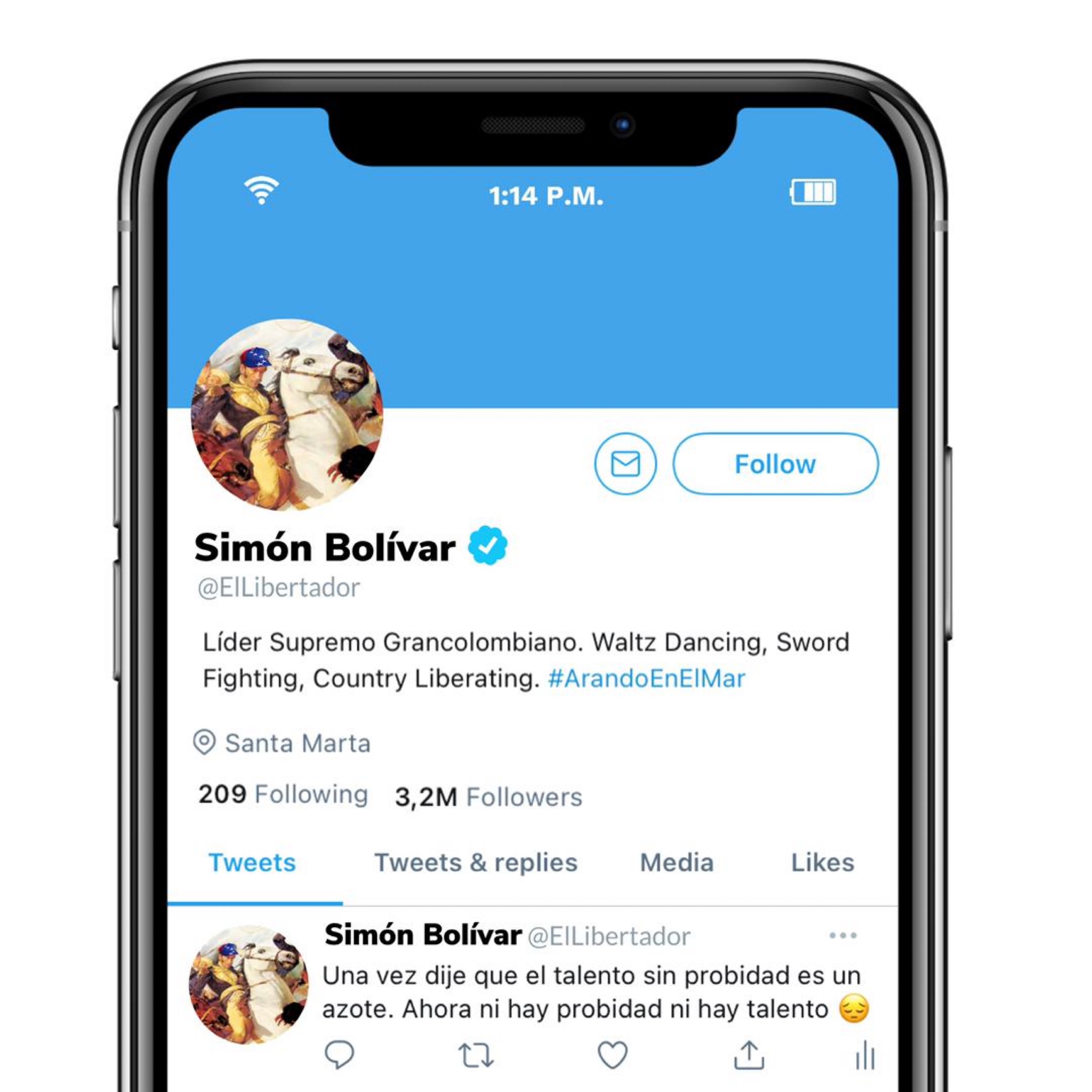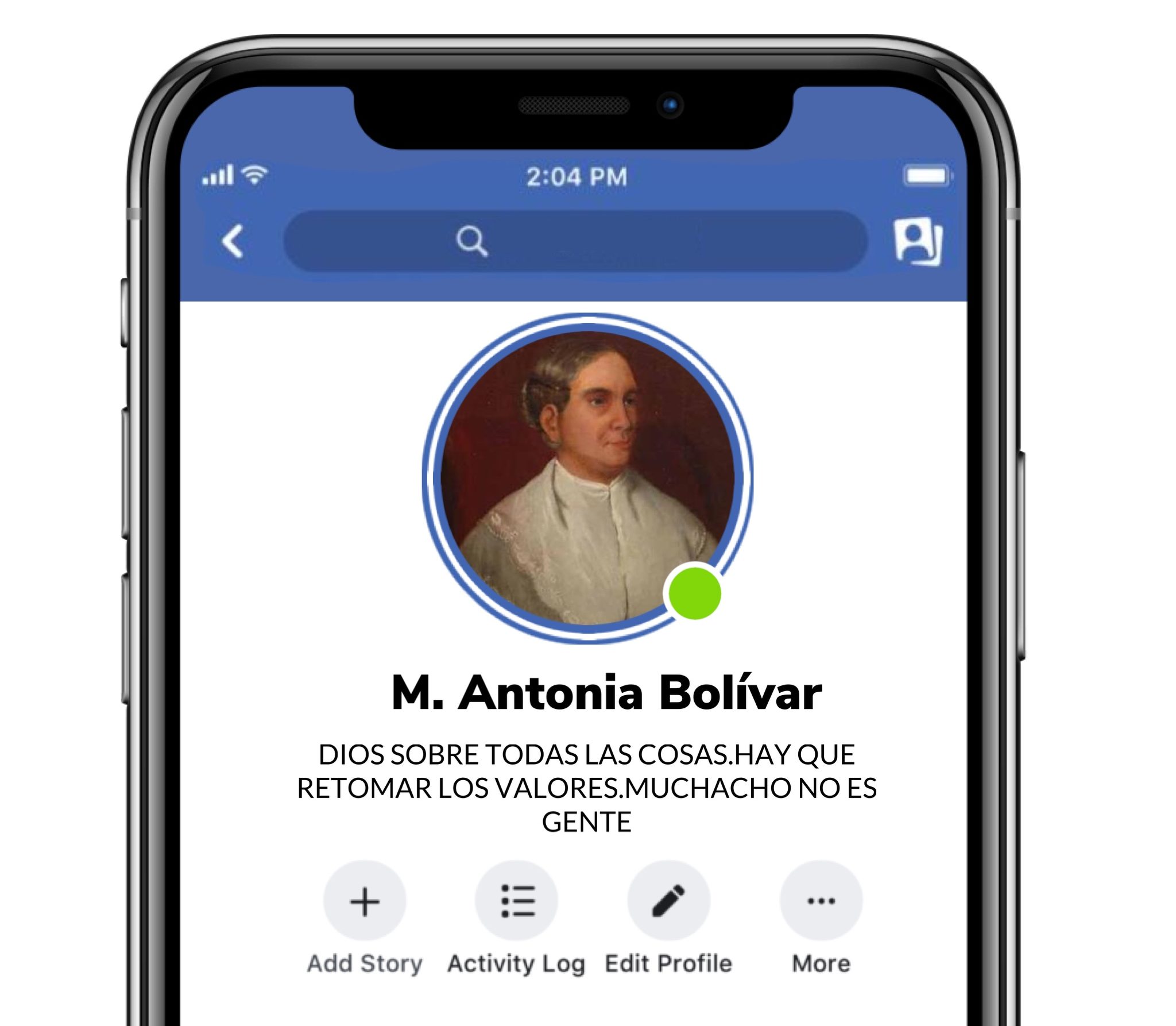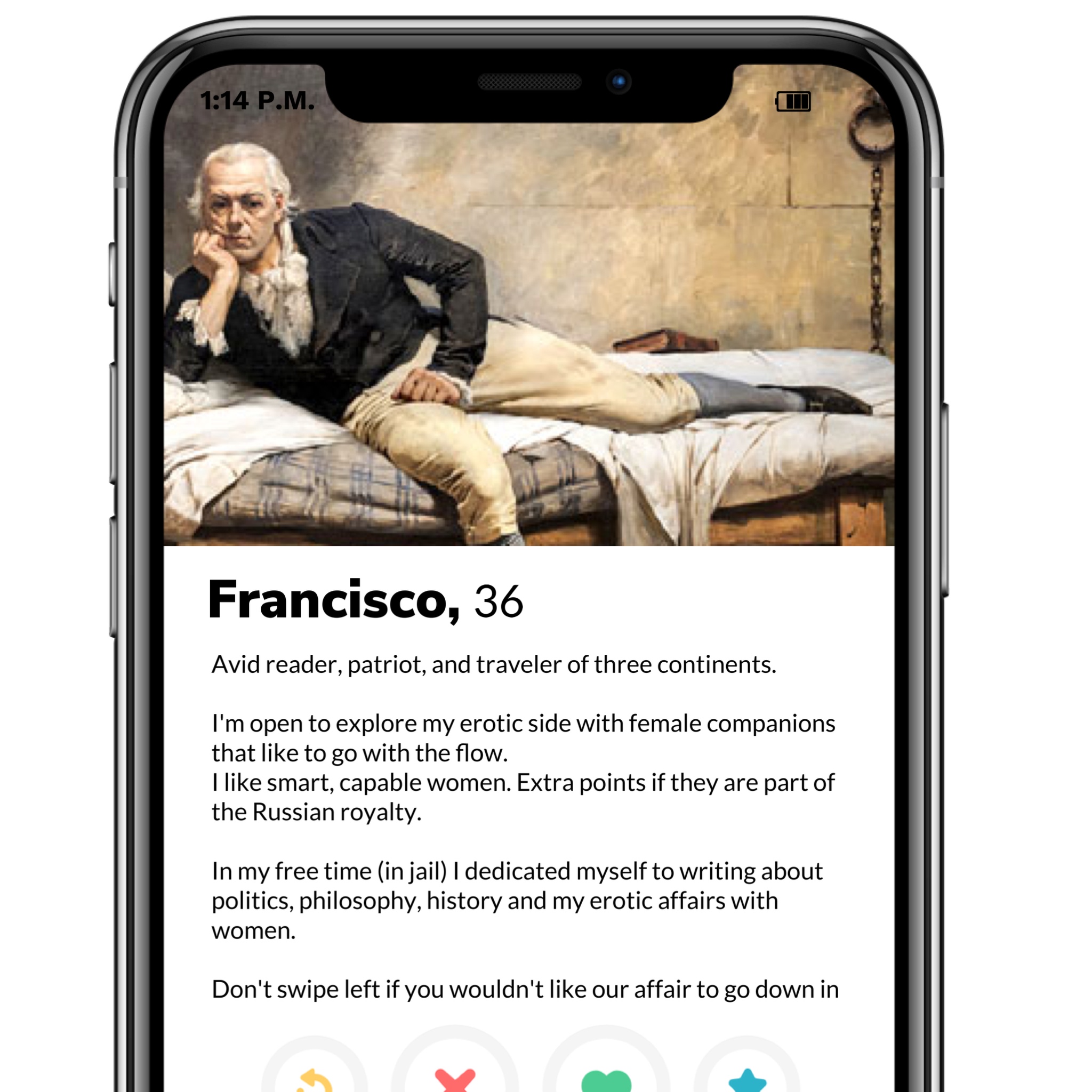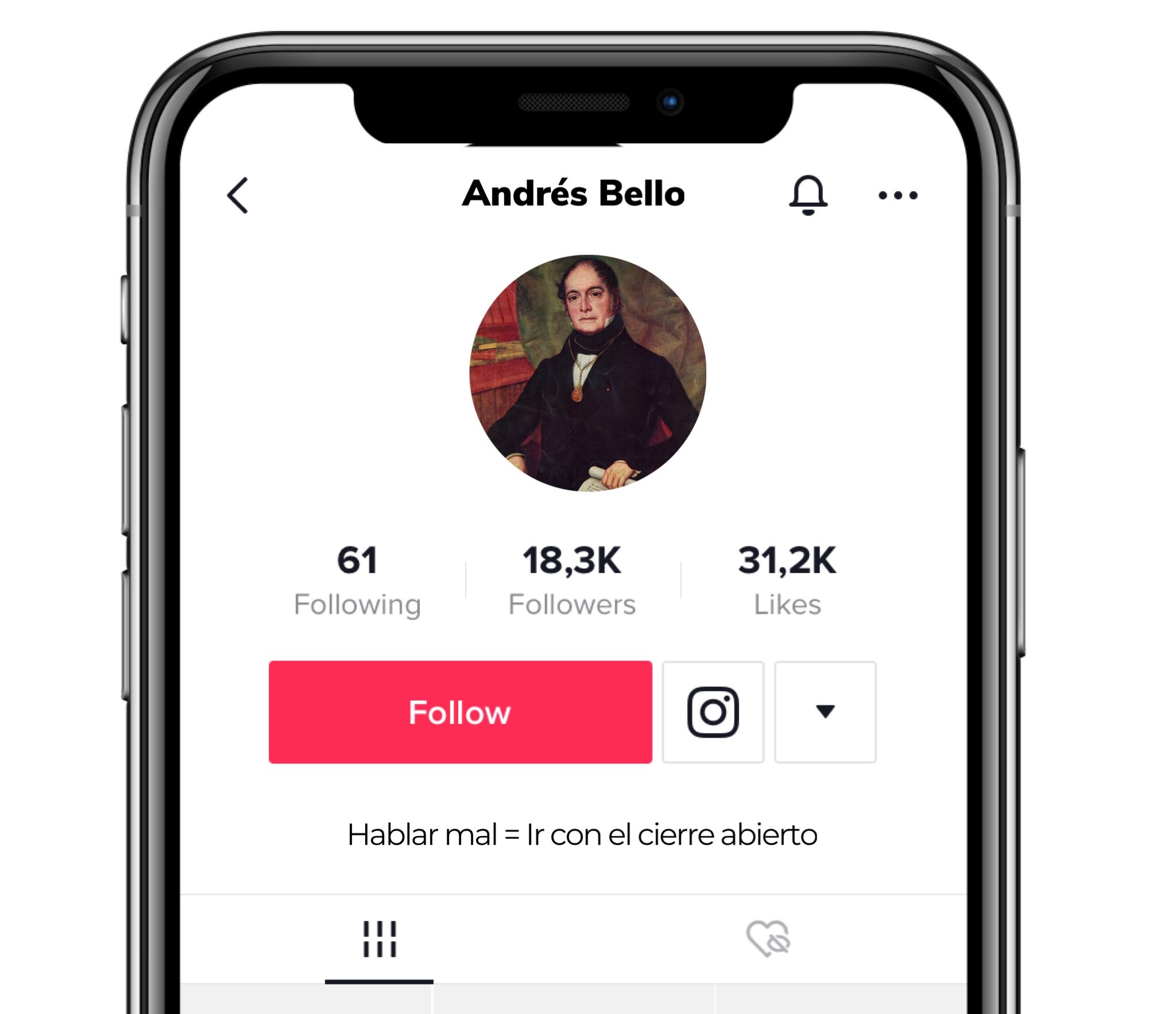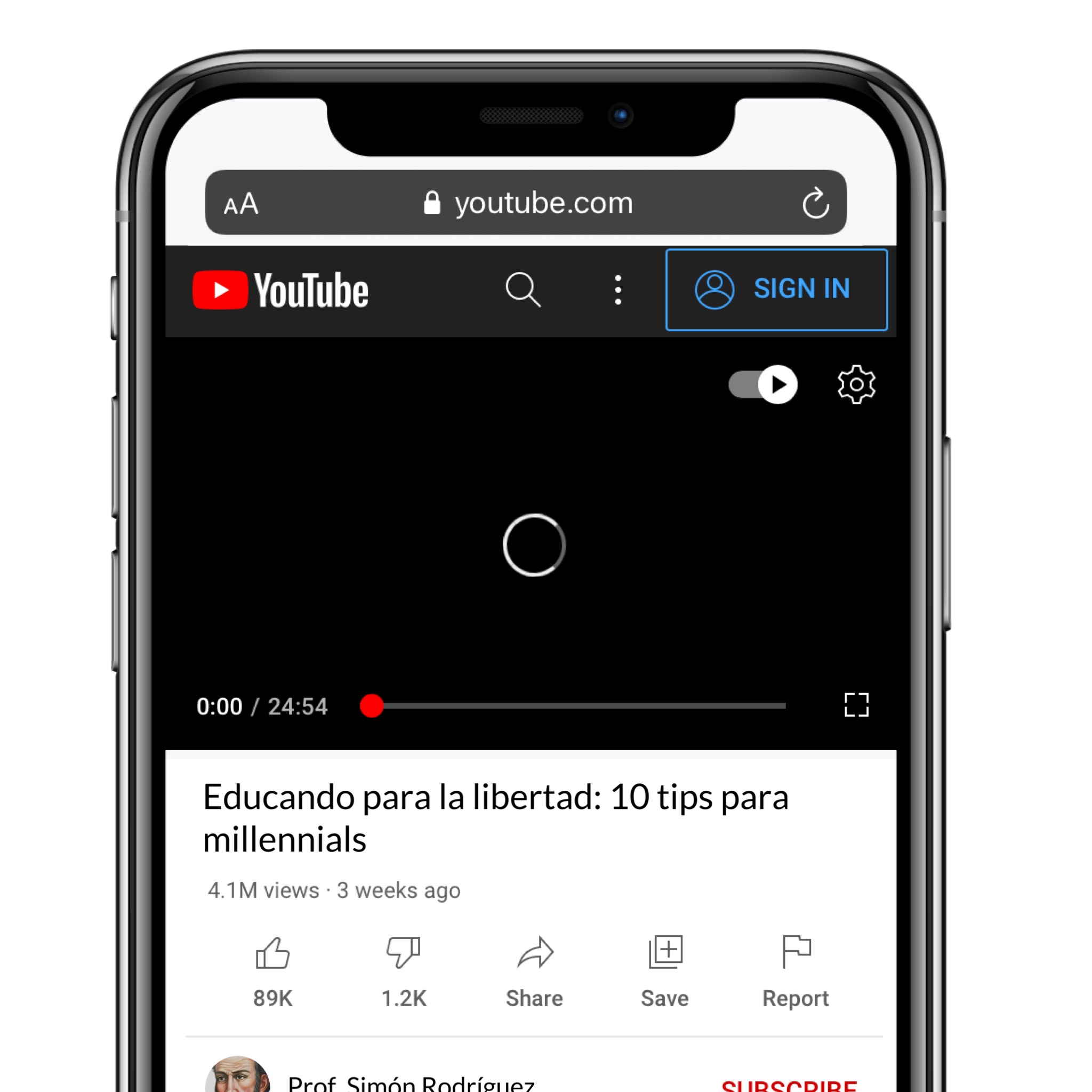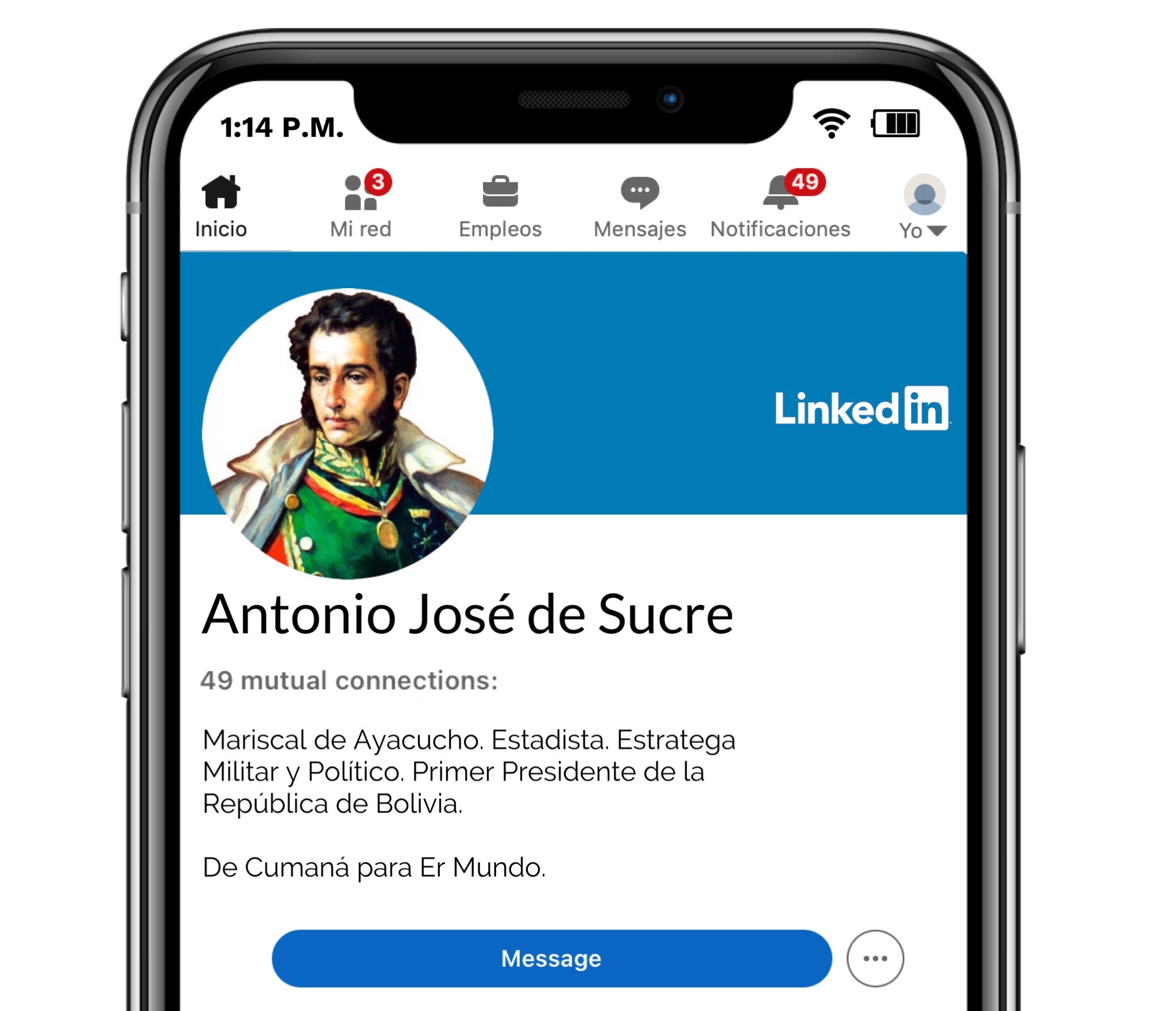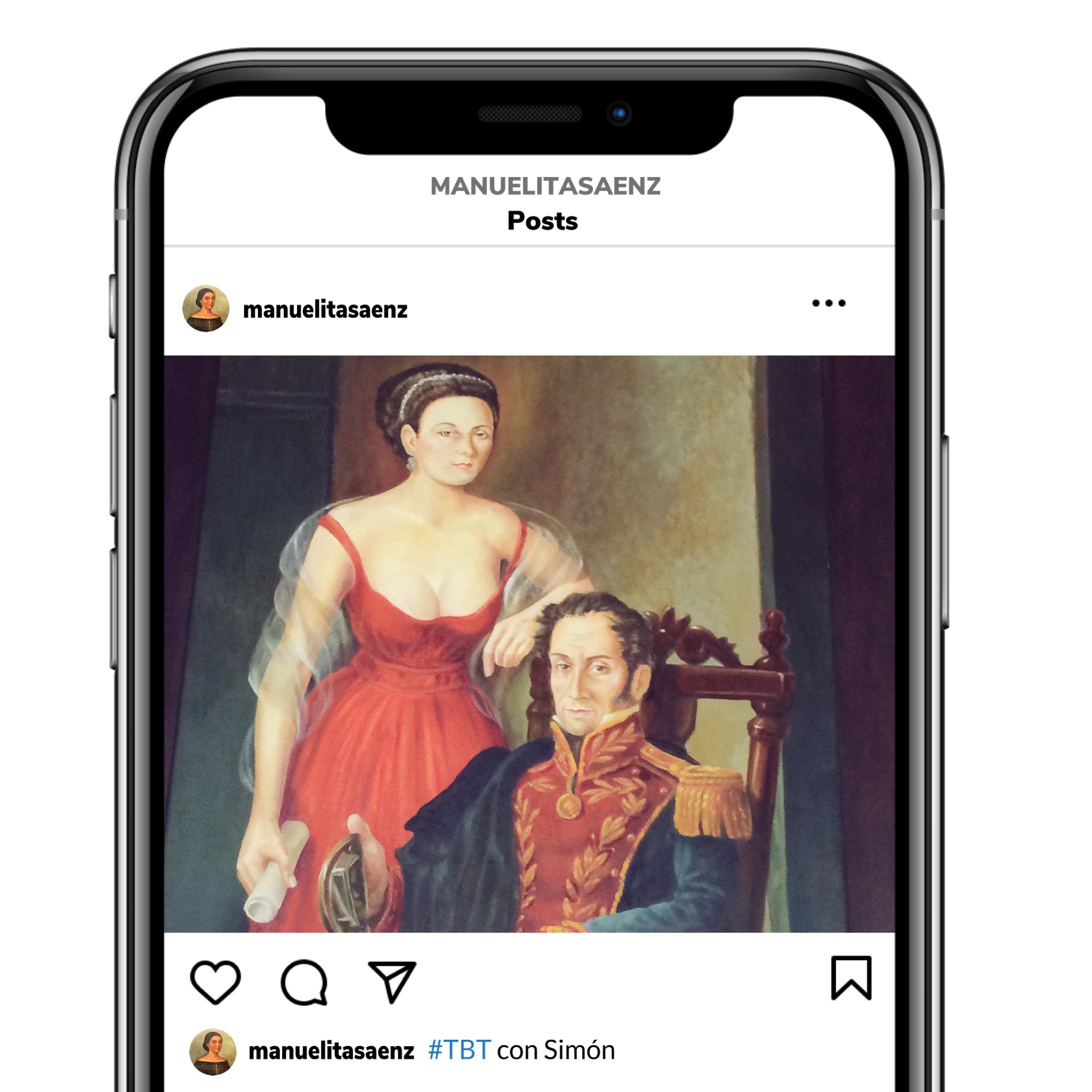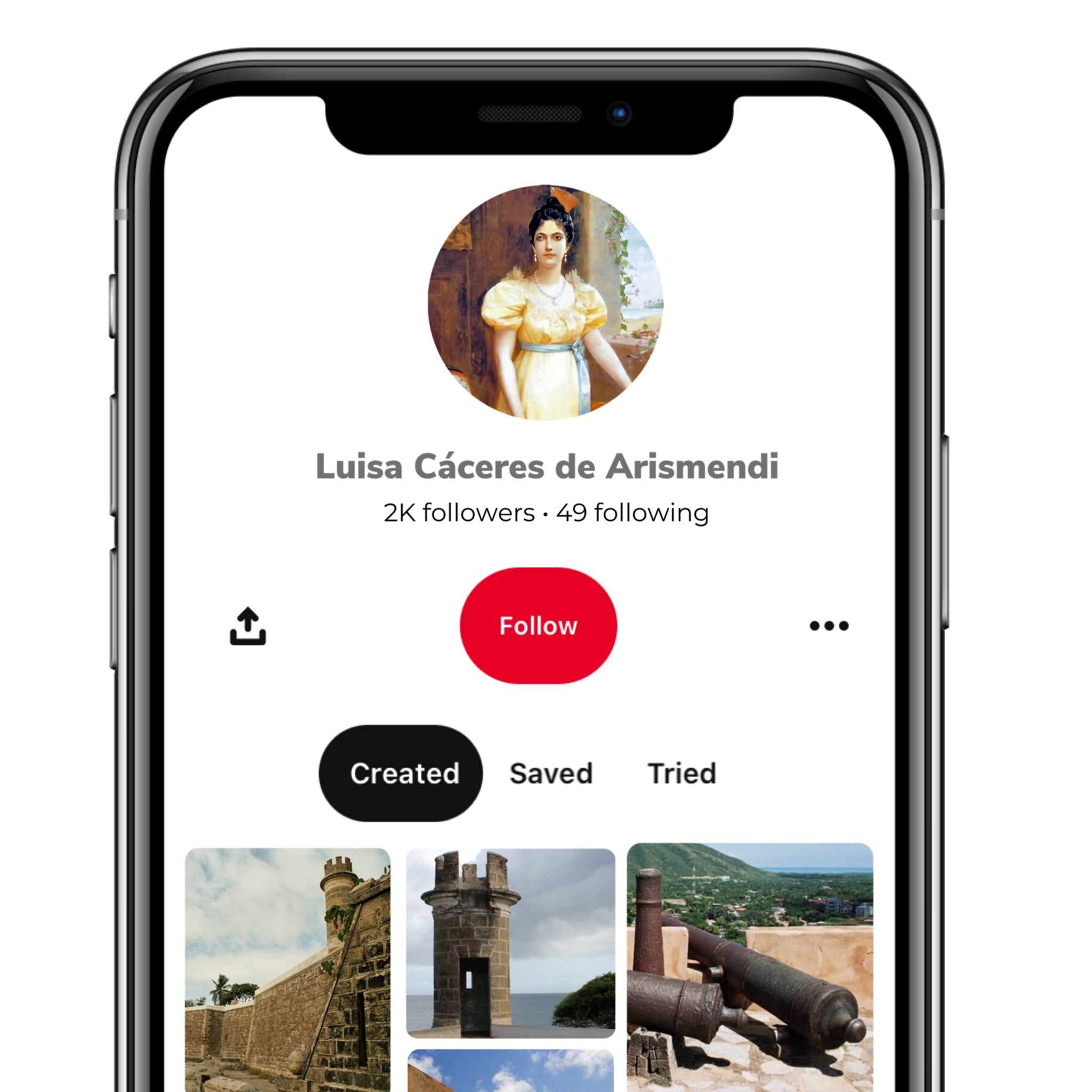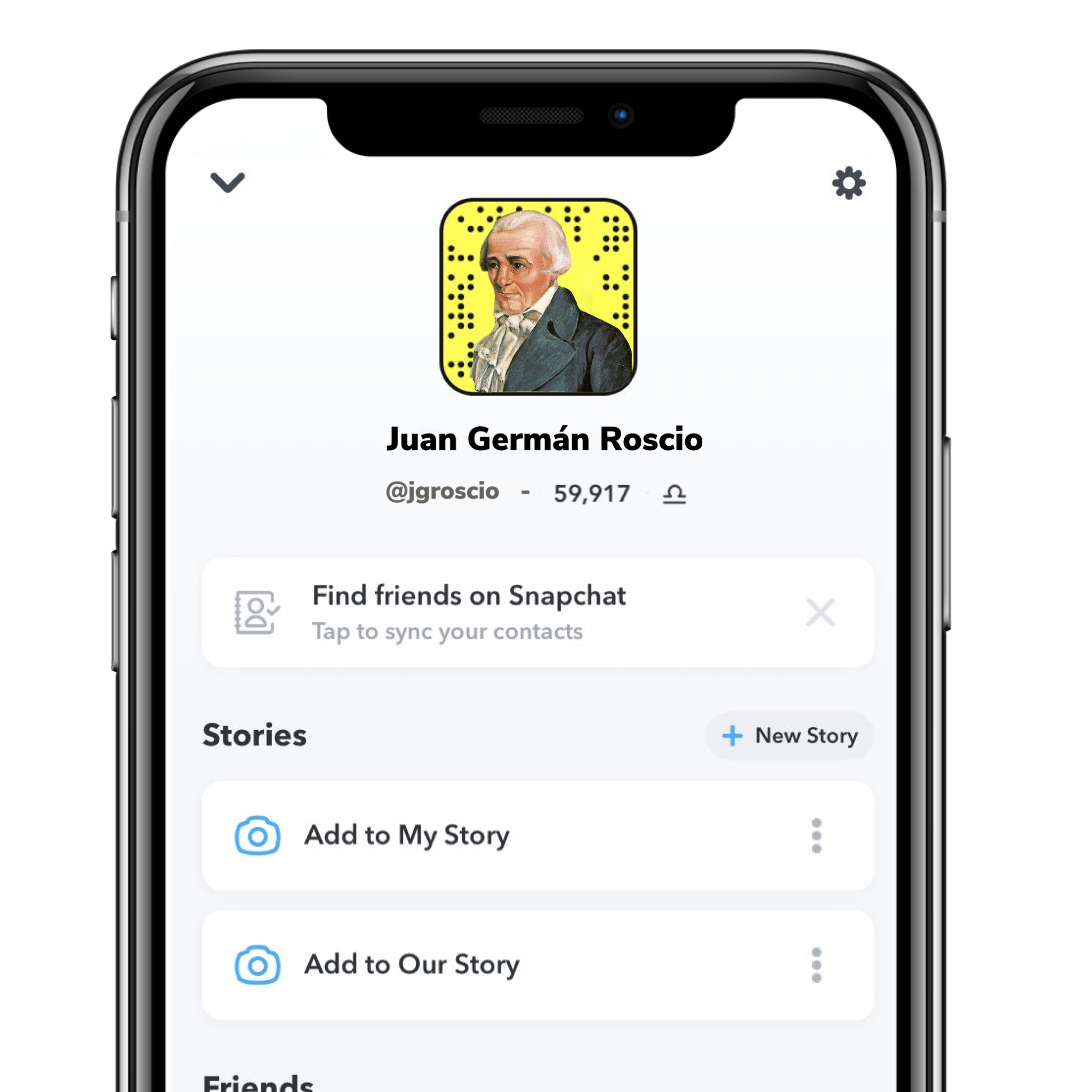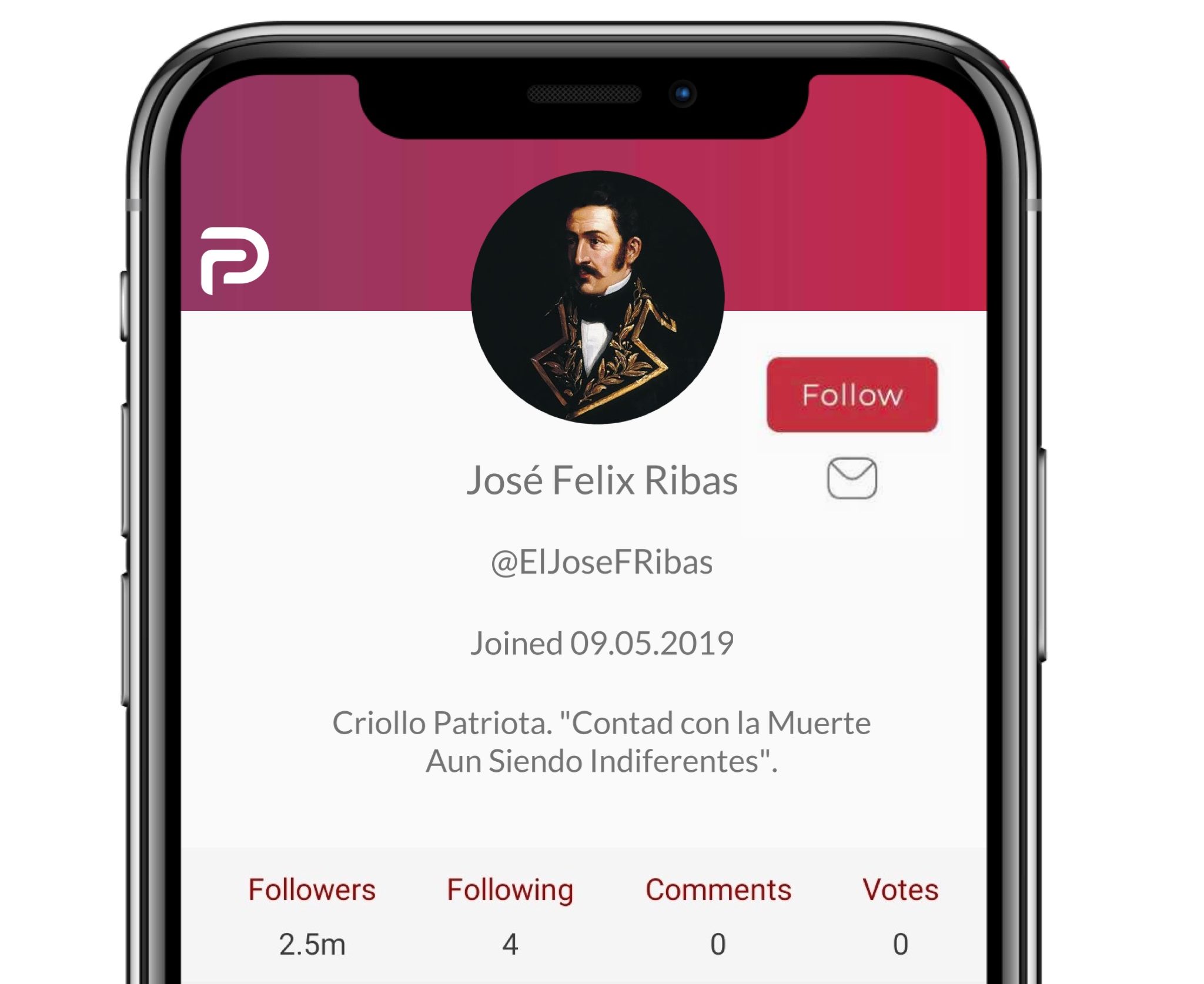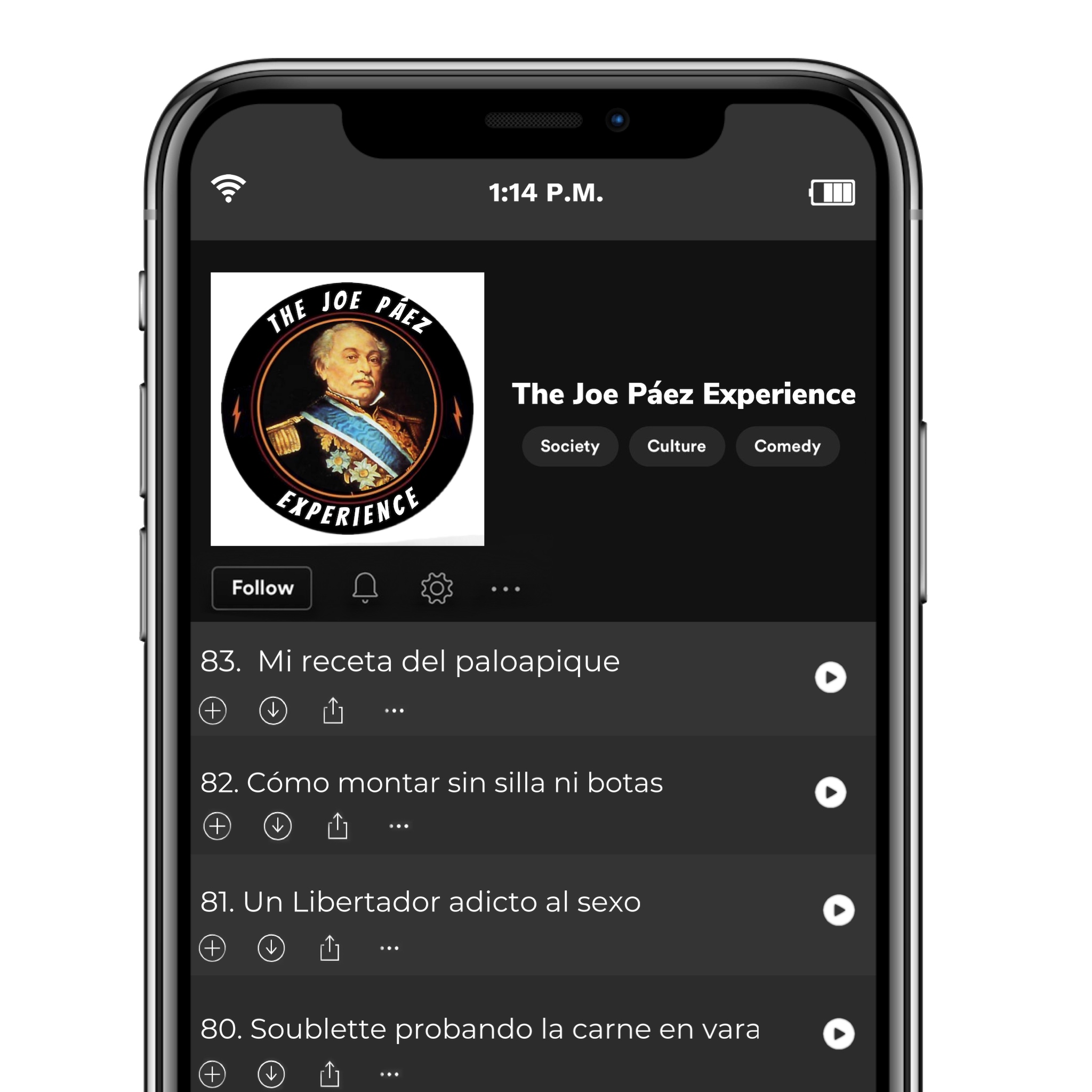How Venezuela’s National Heroes Would Use Social Media
Imagine our national heroes joining this bizarre climate of public opinion. Which would be the platforms of choice of Bolívar, Miranda, or Manuela Sáenz?


Simón Bolívar: Twitter
It started as a platform for microblogging, as if made for dedicated journal writers such as Alexander von Humboldt. Then it showed a great potential to avoid state control during pro-democracy protest waves, as happened in Iran in 2008. More recently, Twitter became the favorite tool to manipulate public opinion by leaders prone to speak about everything and address the masses with their very personal opinion of what truth is.
So Twitter would be perfect for El Libertador. Actually, there’s at least one parody account on his behalf.
Simón Bolívar (1783-1830) not only proved to be a charismatic leader and an agile political strategist, quite aware of the value of communication in warfare and state-building; in the private letters and public announcements he wrote during his spectacular twenty-year career, he showed great talent for coming up with memorable quotes in less than 240 characters, that even if were written in the ampulous, melodramatic style of his time, are used today. Just imagine that same Bolívar who wrote “an ignorant nation is a blind tool of self-destruction,” (54 characters) quoting himself to criticize anti-vaxxers, or repeating what he allegedly said after the 1812 earthquake, “if Nature opposes, we’ll fight it and make it obey,” (50 characters) to address the floods and forest fires of climate change.
Right now, if Bolívar was alive but suffering from COVID-19, he’d be tweeting “if the parties ceased and the union is consolidated, I would descend in peace to my tomb,” as his theatrical way of pressuring the opposition to find a common position against the Maduro regime.
María Antonia Bolívar: Facebook
We knew little of Bolívar’s family. The national doctrine of mestizaje preferred to celebrate the role of the house slaves who raised him, such as “Negra Hipólita” and “Negra Matea”——yes, no family names, this is how we know them—while it ignored the ghostly figure of El Libertador’s mother and the numerous faults of his father, who was a sexual predator with a record. But in the best seller La criolla principal, historian Inés Quintero unveiled the tenacious personality of the hero’s older sister, María Antonia (1777-1842). She was politically adverse to his famous brother, a traditionalist who despised the disasters caused by the revolutionaries, and defended colonial values. She had a strong voice and used it as much as a woman of her time and social condition could.
María Antonia would be a very active Facebook user, the conservative aunt we all have. She’d be spreading fake news and bendiciones, smashing the Black Lives Matter protests, blaming everything on Foro de São Paulo, supporting Trump, Duque, Bolsonaro and Bukele.
Wait, is María Corina Machado the reincarnation of María Antonia Bolívar, as Chávez kinda suggested he was Bolívar’s?
Francisco de Miranda: Tinder
One of the most fascinating characters of our history is known for having invented the concept of Colombia as a great Latin American nation, designing the first Venezuelan flag, and living incredible adventures in two continents before taking part in the First Republic and being blamed for its demise. Miranda (1750-1816) was also, in his own confession, a Latin lover who might or might have not seduced, for instance, Czarina Catherine the Great with his war stories, his Rousseau and Voltaire readings, and his considerable ability to get funding for his “cause” (meaning his pocket).
In 2021, Miranda would be a master of GoFundMe campaigns and a lobbyist with acquaintances in the UN, the White House, the European Union and many palaces in Latin America. And he’d be an active Tinder user, a silver fox with a ponytail, tanned, well-traveled, with very wide tastes, a weak candidate for a sugar daddy but a good younger lover for rich, senior ladies.
Andrés Bello: Tik Tok
What? El Libertador’s teacher a Tiktoker? Such a serious man, an academic, the founder of the Universidad de Chile? Well, think about this: after penning some romantic poetry, Andrés Bello (1761-1865) left a Grammar establishing the rules of the Spanish language that people in the Americas were using. Rather than a guardian of orthodox language, Bello was a researcher and champion of the real language real people used—and had a rather pragmatic approach towards where our mother tongue should evolve. If Bello were to take a peek into the future and the only thing he saw was the “ola ke ase” llama meme, he would surely say: I have triumphed.
We like to imagine Bello reaching the masses with street-smarts, witty Tik Tok videos where he comments on the Spanish he listens to or reads throughout Latin America and the U.S., comparing local variations, mutations of our common language and the best way to use it without copying the Spanish spoken in Spain.
Simón Rodríguez: YouTube
Meanwhile, the other intellectual mentor of Bolívar, Simón Rodríguez (1769-1854), would be a YouTuber like Alex Tienda or Casey Neistat. He was a hippy avant la lettre, a man of vanguards and utopias, more similar to Walt Whitman or Henry David Thoreau than to his blood-thirsty disciple. He’d be traveling the world, interviewing people, inventing religions or trends. He’d be giving TEDx Talks and jumping among freelancing gigs in projects with banks, UN agencies and NGOs, while feeding a YouTube channel with all his adventures, ideas, stories and theories. Under his personal brand Samuel Robinson—his nom de plume back then—he would have preached at the Cúcuta concert and would be pestering Caracas Chronicles with uneditable articles.
Antonio José de Sucre: LinkedIn
At the other end of the personality spectrum of El Libertador’s entourage, the Mariscal de Sucre (1795-1830) would be the ideal LinkedIn user, resharing Bolívar’s tweets and Rodríguez’s videos, and constantly editing his perfect personal profile: “As President of Bolivia, I was responsible for leading the nation-building efforts from the old province of Alto Peru into a minimally functional nation-state provided with a modern Constitution…”
A military star of great discipline, impeccable personal life and a precocious professional life, today Sucre would be the guy who never makes a mistake during a Zoom call, who writes the policy papers, and who gives well researched (but boring) speeches in business chambers conventions and the World Economic Forum.
Manuela Sáenz: Instagram
What about the women? Consider one who wasn’t Venezuelan but played an important role as Bolívar’s lover (and probably greatest love) during El Libertador’s last, difficult years in Colombia. Beautiful, smart, and well-connected, Quito-born Manuela Sáenz (1797-1856) would put her strategic mind and her fierce spirit into being an Instagram influencer with a solid base of followers. Picture her visiting Andean capitals and sharing selfies from the main squares, the malls, the beaches, the corporate headquarters and regional events. Manuela would be streaming live from the Cumbre Iberoamericana, distracting a president with her looks, and modeling the jewels and outfits of emerging and socially responsible Latin American designers.
Luisa Cáceres: Pinterest
She’s on the bills, in our official history, on some people’s minds when you ask about a woman who took part in the Independence process. Luisa Cáceres de Arismendi (1799-1866) was a privileged child in Margarita Island who didn’t go to school and married Colonel Juan Bautista Arismendi when she was 15 and he was 39. In 1815, when the Spanish Armada took Margarita, she was taken hostage by the Spanish to force her husband to turn himself in. She was pregnant at the time and was tortured in a castle, just like the Maduro regime does with some relatives of members of the opposition today. When the Spanish sent a message to force Arismendi out of his hideout in the mountains, he answered that without a motherland, he wanted no wife. She gave birth in prison to a baby girl who died. After that, she was transferred to different reclusion sites in Pampatar, La Guaira and Caracas, before the Spanish decided to take her to Cadiz. In Spain, an American bailed her out and took her to Philadelphia. She was granted full freedom in Caracas when she finally went back in 1819… after which she resumed her family life with the man who had left her suffering under 19th-century imprisonment for four years.
Which social media platform would a woman like Luisa use, a woman totally submitted to the traditional roles of mother and wife, dreaming of a carefree world, open spaces, fine things and bliss? A social media designed to collect images of the life we think we’d love to have: Pinterest.
Juan Germán Roscio: Snapchat
We can’t overlook those guys who did a great job but were ignored in the starring cast of History because they were so directly related to the main character, or simply weren’t beheading enemies with a sword. For instance, Italian-Venezuelan lawyer Juan Germán Roscio (1763-1821). Did you know Roscio wrote or co-wrote many of our foundational documents, such as the Declaration of Independence of 1810, the Independence Act of 1811, and our first Constitution in 1811? He was a congressman, a political organizer, a journalist and a thinker of that new country those guys invented two centuries ago. The platform that better expresses Roscio’s contradiction between the relevance of his contribution and the spread of his public awareness is Snapchat, a social media that opened the path to many things that are happening today in that industry, but was displaced by its competitors.
José Felix Ribas: Parler
General José Félix Ribas (1775-1815) had a violent life. In 1814, he recruited a bunch of religious students by force to fight the invincible army of loyalist José Tomás Boves. The kids were massacred, of course, and we have Youth Day to remember that horrible tragedy as an act of sacrifice. The following year, a slave denounced his whereabouts to the loyalists, who tortured Ribas, dismembered him and exposed his fried head in a small cage to discourage the patriots.
He was a rich man, owner of extensive lands and slaves. He witnessed political violence from a young age and believed in violence to achieve his goals. He took part in many conspiracies. Today, we believe he would have to turn to Parler to find people who share his view of the world being a battlefield where any means could serve the interest of his privileged class.
José Antonio Páez: Spotify
Last but not least, General José Antonio Páez (1790-1873) had the most humble origins of our founding heroes, and was a military genius difficult to manage, a maverick in the Freedom Army, until the war ended and he had to become the only strongman able of facing the many challenges of reconstruction in times of peace. He had a long life and many talents. He even learned music at a late age. We like to imagine Páez as a magnificent podcaster, who would humor thousands of listeners with his show on Spotify Los cuentos del Centauro, a good hour (shorter than Pueblo People generally is) of battle stories, political anecdotes, and jokes about the sexual appetite of Bolívar and the sifrino customs of Soublette. Llaneros are great storytellers. It would be just wonderful.
Caracas Chronicles is 100% reader-supported.
We’ve been able to hang on for 22 years in one of the craziest media landscapes in the world. We’ve seen different media outlets in Venezuela (and abroad) closing shop, something we’re looking to avoid at all costs. Your collaboration goes a long way in helping us weather the storm.
Donate


